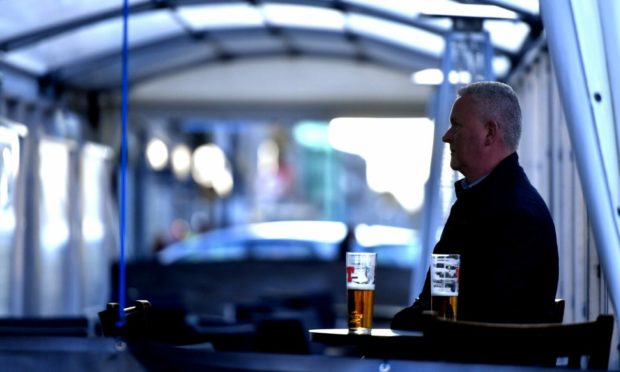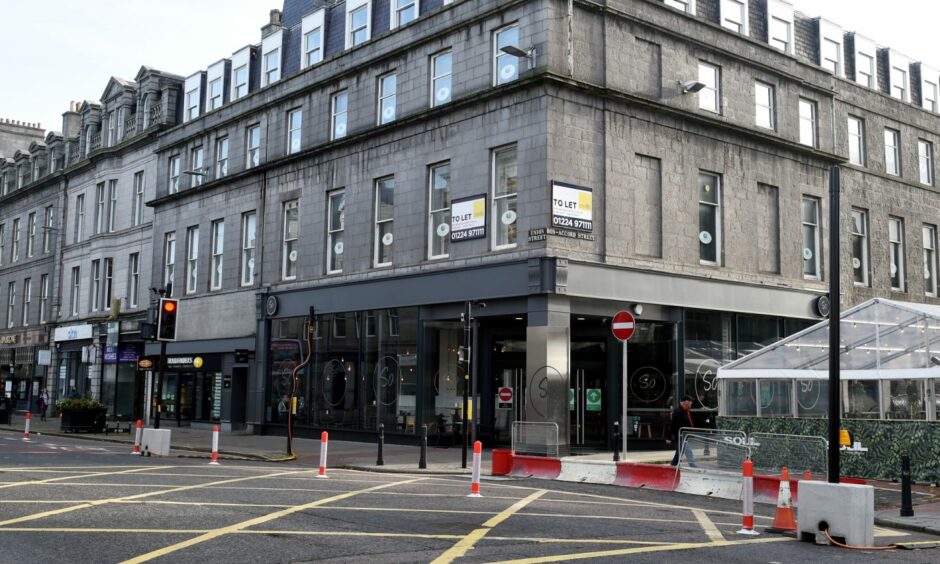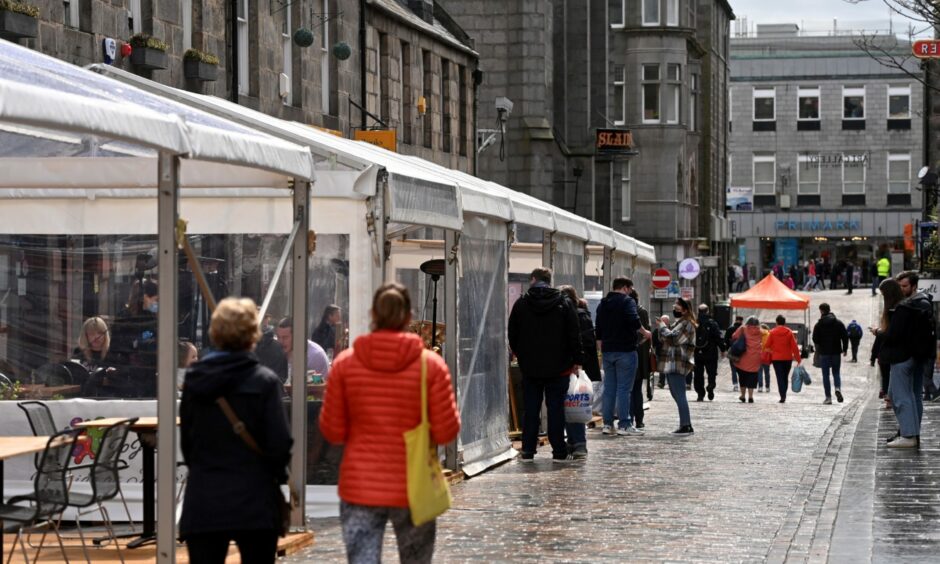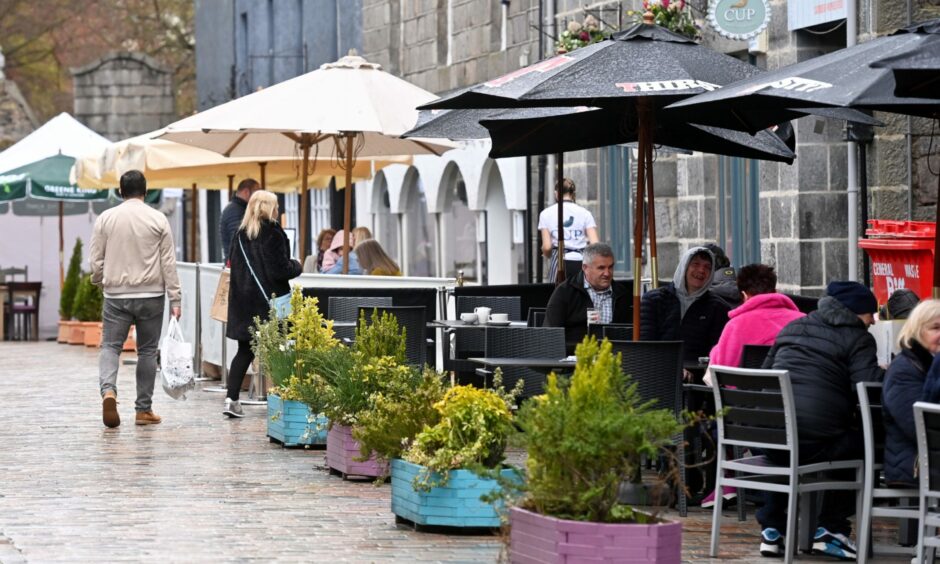The tents and marquees which popped up all over Aberdeen, helping to keep the hospitality trade in business through the pandemic, could remain in place until March 2022.
Pubs, restaurants and cafes across the Granite City have taken advantage of the increased flexibility in licensing and planning rules to offer customers
And continuation of the policy, encouraged by the Scottish Government, could well play a lead role in Aberdeen’s future: the oft-mentioned – and sometimes divisive – promotion of cafe culture in our streets.
The city council is currently dreaming up new ways of using the streets to encourage trade, footfall and and atmosphere in the centre.
And Wednesday’s city growth committee meeting will be a key step in the process – with major decisions on the future regeneration of Aberdeen to be made.
Along with potentially moving detailed planning of a permanent pedestrianisation of Union Street to the top of the to-do list for council’s design team, choices could be made on an overhaul of the beachfront.
Options for the area, now part of a £150 million refresh of the city centre masterplan, could include a new football stadium, updated sports facilities, and a revamp of the Beach Ballroom.
On top of all that, councillors are being asked to maintain the road changes brought in last year to enable physical distancing, safer walking and cycling, and easier outside trading for the foreseeable future.
With that in mind, roads chiefs are pressing for the continued closure of Bon Accord Street at its junction with Union Street.
Resources director Steve Whyte is recommending members maintain the flexibility on occasional licences – which has allowed the likes of the Grill’s beer tent in Union Street – until March 31.
Dependent on councillors backing plans for Union Street, he has suggested the local authority only reopens Bon Accord Street after the current flexibility ends.
This, he said would be reliant on timelines for long-awaited road improvements in South College Street, which would require earlier opening for the key route from the city centre to the south.
And, as hospitality venues have spilled out into streets, parks, car parks and green spaces during the pandemic, top officials are asking for approval to look at making it easier for firms to take up the space permanently.
This plays into another long-term aspiration of the Town House bosses – who are looking to bring European cafe culture to the city.
As roads are redesigned around the centre and West End of Aberdeen, public space could be dedicated to the notion – one that proved hard to get off the ground before the necessity of the pandemic.
However, key sites – such as proposed outdoor seating outside the art gallery, and in Belmont Street and Back Wynd – are being eyed as the perfect spaces to try again.
Having sampled sipping coffee in a marquee as the rain poured or having a pint in a tent while the air outside is so cold they could see their breath, Aberdonians seem to have warmed to the cafe culture ideology.
A recent poll of the public, put out by the council to better understand where they should first focus regeneration projects in the city centre, placed the use of the so-called ‘Belmont Zone’ for outdoor hospitality as of utmost importance.
Mr Whyte added: “The priorities raised by the public through the (consultation) focussed on Union Street as the heart of the city and building maintenance, Belmont Street cafe culture and the beach as a location for a stadium.
“In conjunction with the expressed wish to make cafe culture permanent, officers should investigate the possibility of council-owned land allowing permanent outdoor areas to promote cafe culture.
“As a potential early intervention in this regard, consider installing outdoor seating outside Aberdeen Art Gallery as a first phase delivery of that cafe culture.”



